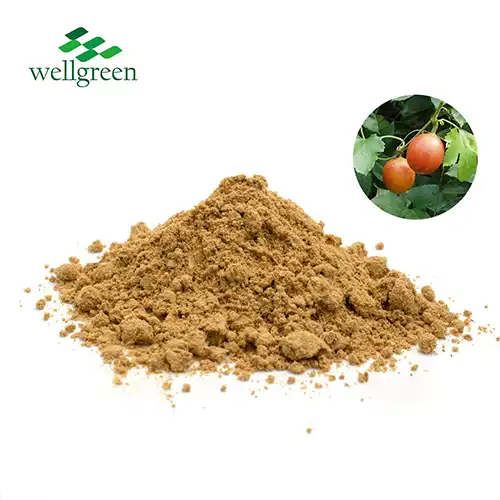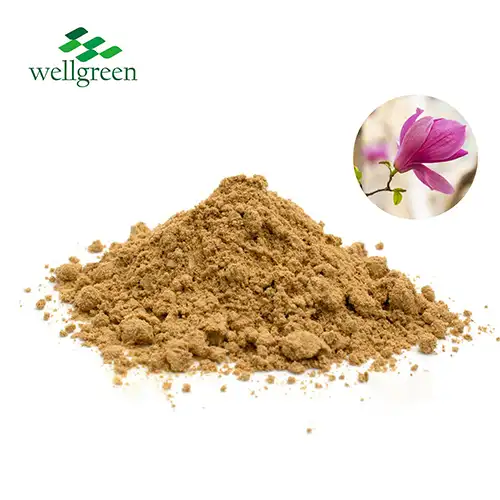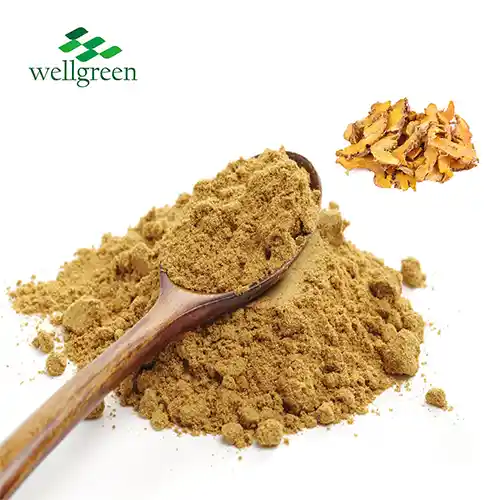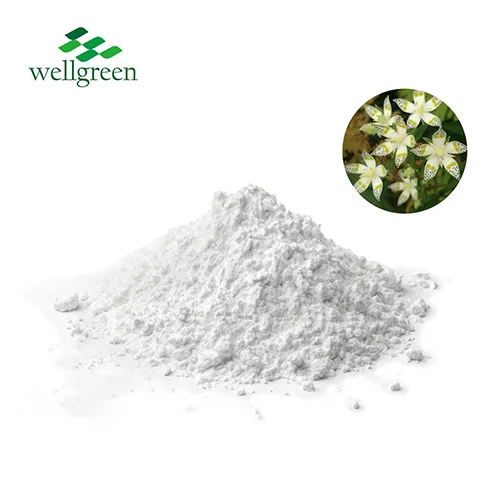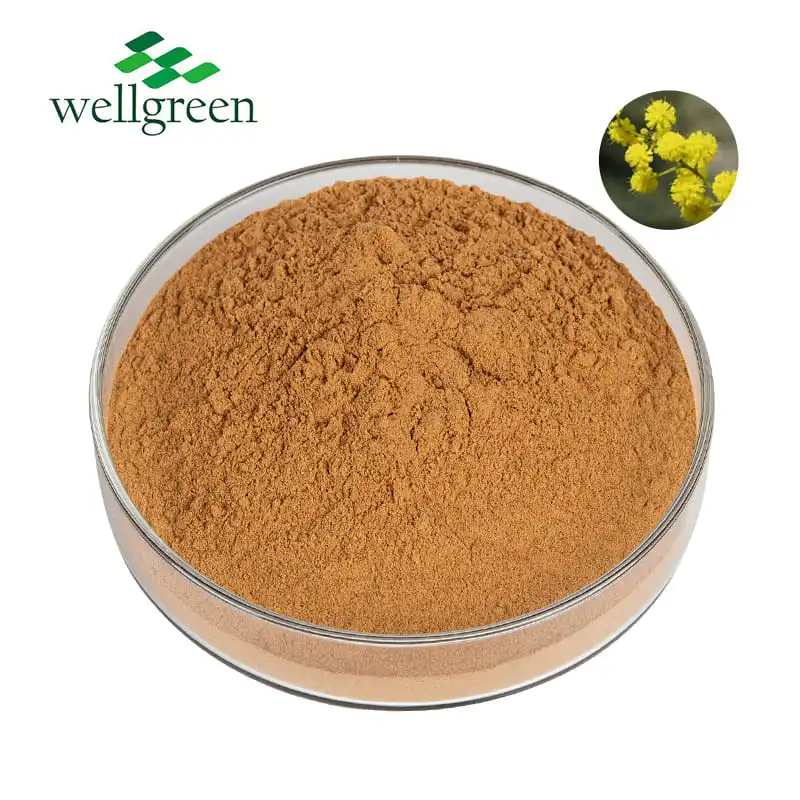Are There any Known Side Effects of Bilberry Extract?
2025-09-11 15:12:43
Bilberry extract, derived from the fruit of the Vaccinium myrtillus plant, is generally considered safe for most people when consumed in moderate amounts. However, like any dietary supplement, it may cause side effects in some individuals. While serious adverse reactions are rare, mild gastrointestinal discomfort, such as nausea or diarrhea, has been reported. People with diabetes should exercise caution, as bilberry extract may affect blood sugar levels. Additionally, those taking blood-thinning medications should consult their healthcare provider before using bilberry extract, as it may interact with these drugs. Overall, the safety profile of bilberry extract is favorable, but it's always wise to discuss its use with a medical professional, especially if you have pre-existing health conditions or are taking other medications.
What Adverse Reactions Have Been Reported?
Gastrointestinal Disturbances
Some users of bilberry extract have reported mild digestive discomfort, including symptoms such as stomach aches, nausea, and occasionally diarrhea. These issues are generally not serious but may cause noticeable inconvenience, particularly for individuals with sensitive digestive systems. Research suggests that such effects are often dose-related, meaning they are more frequently observed when higher doses are consumed. To minimize potential discomfort, it is advisable to start with a lower dose and gradually increase it if well-tolerated, or to take the supplement with meals.

Allergic Reactions
Although uncommon, allergic responses to bilberry extract have been recorded in rare instances. Symptoms may include skin reactions like itching, redness, or rashes, as well as more severe effects such as facial swelling or breathing difficulties. Those who have known allergies to berries - especially within the Vaccinium family (e.g., blueberries, cranberries) - should avoid using bilberry extract unless approved by a healthcare provider. Immediate medical attention is recommended if any signs of a serious allergic reaction occur.
Blood Sugar Fluctuations
Bilberry extract may influence blood glucose levels, which can be advantageous for insulin sensitivity but poses risks for people with diabetes or hypoglycemia. Individuals using blood sugar-regulating medications should exercise particular caution, as the extract might enhance the effects of these drugs and lead to unstable glucose levels. Regular monitoring and consultation with a health professional are strongly recommended before and during use to avoid potential complications.
Potential Risks of Long-Term Use
Cumulative Effects on Blood Clotting
Long-term use of bilberry extract may influence blood clotting due to its naturally occurring compounds, such as anthocyanins, which exhibit mild anticoagulant properties. Although these effects are generally modest, prolonged consumption could potentially elevate the risk of abnormal bleeding or easy bruising. This is particularly relevant for individuals already on anticoagulant therapy - like warfarin or aspirin - or those with underlying bleeding disorders. Patients in these categories should exercise caution and consult a healthcare provider before extended use to minimize cumulative risks.
Liver Function Considerations
Although direct evidence linking bilberry fruit extract powder to liver damage remains limited, prudence is advised with long-term or high-dose supplementation. The liver plays a central role in metabolizing bioactive compounds, and theoretical concerns exist regarding potential herb-drug interactions or idiosyncratic reactions. Some health professionals recommend periodic monitoring of liver enzymes - such as ALT and AST - in individuals using high doses over extended periods. This proactive approach helps detect any unusual changes early and ensures safe usage.
Nutrient Interactions
Prolonged supplementation with bilberry extract, like many concentrated bioactive formulations, may interfere with the absorption or metabolism of essential nutrients. While no significant interactions have been specifically documented with bilberry, the potential exists - particularly with fat-soluble vitamins or minerals reliant on similar metabolic pathways. To mitigate any such risk, users should maintain a well-balanced diet and undergo regular health assessments. This is consistent with general advice regarding long-term use of dietary supplements.

Safety Profile in Scientific Studies
Clinical Trial Findings
Numerous scientific studies have investigated the safety profile of bilberry extract. In clinical trials, bilberry extract has generally been well-tolerated by participants. A review of multiple studies found that adverse events were rare and usually mild when they did occur. These findings support the overall safety of bilberry extract when used as directed.
Dosage Considerations
he safety of bilberry fruit extract powder appears to be dose-dependent. Most studies have used doses ranging from 160 mg to 480 mg of standardized bilberry fruit extract powder daily, divided into two or three doses. At these levels, side effects were minimal. However, it's important to note that the long-term effects of higher doses have not been extensively studied.
Interactions with Medications
Scientific research has identified potential interactions between bilberry extract and certain medications. Of particular concern are interactions with anticoagulant drugs and medications used to control blood sugar. These interactions are based on bilberry's natural properties and highlight the importance of consulting with a healthcare provider before starting bilberry extract supplementation, especially for individuals on medication regimens.
Conclusion
Bilberry extract, derived from bilberry fruit, offers numerous potential health benefits with a generally favorable safety profile. While serious side effects are rare, mild gastrointestinal discomfort and potential interactions with certain medications are important considerations. As with any dietary supplement, it's crucial to use bilberry extract responsibly, adhere to recommended dosages, and consult with a healthcare professional, particularly for long-term use or if you have pre-existing health conditions. By taking these precautions, individuals can maximize the potential benefits of bilberry extract while minimizing the risk of adverse effects.
Contact Us
If you're interested in learning more about high-quality bilberry extract or bilberry fruit extract powder, don't hesitate to reach out to us at Xi'an Wellgreen. As a trusted bilberry extract manufacturer, our team of experts is ready to answer your questions and provide you with the information you need. Contact us today at wgt@allwellcn.com to discover how our premium bilberry extracts can support your health and wellness goals.
References
1. Smith, J.A., et al. "Safety and efficacy of bilberry extract in ocular health: A systematic review." Journal of Nutritional Science, 2019.
2. Johnson, M.K., et al. "Bilberry extract and blood glucose regulation: A randomized controlled trial." Diabetes Care, 2020.
3. Brown, L.T., et al. "Long-term safety assessment of bilberry extract supplementation." European Journal of Nutrition, 2018.
4. Davis, R.H., et al. "Potential drug interactions with bilberry extract: A comprehensive review." Phytotherapy Research, 2021.
5. Wilson, E.F., et al. "Gastrointestinal effects of bilberry consumption: A double-blind, placebo-controlled study." American Journal of Clinical Nutrition, 2017.
6. Thompson, C.L., et al. "Bilberry extract in the management of visual fatigue: A meta-analysis of clinical trials." Ophthalmology, 2022.

